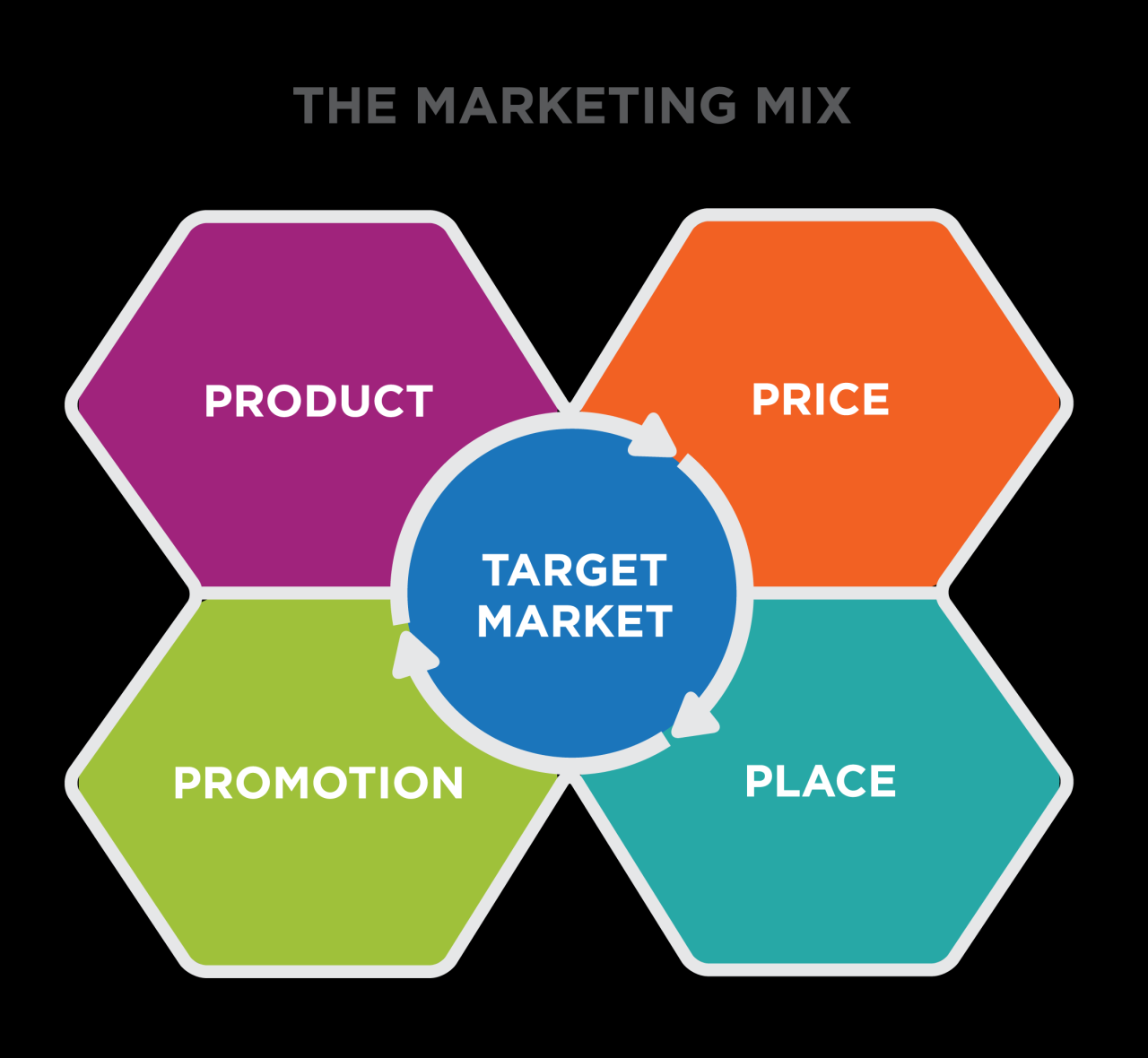Marketing Audit Services to Build Trust and Attract Business Clients are essential for any business looking to enhance its marketing strategies and foster lasting client relationships. In today’s competitive landscape, organizations must be proactive in evaluating their marketing efforts to not only identify strengths but also uncover weaknesses that may impede growth. A well-executed marketing audit can be a game changer, laying the foundation for improved service delivery and heightened trust amongst clients.
These audits encompass key components that provide businesses with valuable insights into their marketing practices. By utilizing effective tools and methodologies, companies can systematically review their strategies, ensuring nothing is overlooked. The checklist of items to evaluate during the audit process serves as a reliable guide, allowing organizations to maintain transparency and credibility, which are vital in attracting new business clients.
Importance of Marketing Audit Services: Marketing Audit Services To Build Trust And Attract Business Clients
Marketing audit services are essential for businesses seeking to enhance their marketing effectiveness and overall performance. By conducting a thorough examination of marketing strategies, these audits provide invaluable insights that can guide organizations in refining their approach to market engagement. A marketing audit serves not only as a diagnostic tool but also as a strategic framework that can lead to improved decision-making and resource allocation.The significance of marketing audits lies in their ability to spotlight both the strengths and weaknesses within a company’s marketing strategies.
This comprehensive review process enables businesses to identify areas where they excel, allowing them to build on these strengths. Simultaneously, it highlights weaknesses that may be hindering growth or affecting brand perception. By understanding these dynamics, companies can make informed adjustments that enhance their marketing effectiveness and return on investment.
Identification of Strengths and Weaknesses in Marketing Strategies
Recognizing the strengths and weaknesses within marketing strategies is crucial for businesses aiming for continuous improvement. A marketing audit meticulously evaluates various components of marketing efforts, including brand positioning, customer engagement, and competitive analysis. Through this evaluation, organizations can:
- Assess Current Marketing Performance: A marketing audit reviews the effectiveness of current campaigns, helping to determine their impact on the target audience.
- Determine Market Trends: By analyzing data and consumer behavior, businesses can identify emerging trends that could influence marketing strategies.
- Evaluate Brand Image: Audits assess how consumers perceive the brand, ensuring alignment between market messaging and customer expectations.
- Identify Gaps in Customer Engagement: Understanding areas where customer interactions fall short allows businesses to implement strategies that improve engagement and loyalty.
- Analyze Competitor Strategies: By examining competitors, companies can uncover successful tactics that may be adapted or improved upon in their own marketing efforts.
Conducting regular marketing audits fosters an environment of transparency and accountability, which in turn builds trust with clients. When businesses can demonstrate a commitment to evaluating and improving their marketing strategies, clients are more likely to feel confident in the services provided. This trust not only enhances client satisfaction but also leads to repeat business and referrals, essential components for sustained growth.
“Regular marketing audits are the cornerstone of a successful marketing strategy, leading to informed decisions and enhanced client relationships.”
The role of marketing audits extends beyond mere evaluation; they serve as a catalyst for improvement and innovation. By systematically addressing identified weaknesses, organizations can optimize their marketing strategies, leading to better service delivery, enhanced customer experiences, and ultimately, increased profitability. Companies that prioritize marketing audits position themselves to adapt proactively to market changes and maintain a competitive edge.
Key Components of a Marketing Audit
A thorough marketing audit is fundamental for businesses aiming to refine their marketing strategies and optimize their spending. By examining the various components of a marketing audit, organizations can identify strengths, weaknesses, and opportunities within their marketing efforts. This proactive approach not only enhances brand visibility but also builds trust with potential clients through transparent practices.Key elements must be included in a comprehensive marketing audit to ensure its effectiveness.
These components provide a structured framework to evaluate current marketing practices and align them with business objectives. Below are essential elements to consider during the audit process.
Essential Elements of a Marketing Audit
The following components are vital in conducting a marketing audit:
- Market Analysis: Understanding the market dynamics, including target segments, competitor offerings, and industry trends, is crucial for informed decision-making.
- SWOT Analysis: A SWOT (Strengths, Weaknesses, Opportunities, Threats) analysis helps identify internal capabilities and external challenges, guiding strategic planning.
- Marketing Objectives Review: Evaluating existing marketing objectives against measurable outcomes ensures alignment with overall business goals.
- Brand Assessment: Analyzing brand perception among customers and stakeholders reveals insights into brand equity and areas for improvement.
- Digital Presence Evaluation: Assessing the effectiveness of digital channels, including websites and social media, provides insight into customer engagement and online visibility.
- Marketing Spend Analysis: A detailed review of marketing expenditures helps businesses allocate resources efficiently and maximize return on investment (ROI).
To execute these components effectively, various tools and methodologies can be employed. Consider the following examples:
Tools and Methodologies for Effective Audits
Utilizing the right tools can streamline the marketing audit process, leading to more accurate insights. Below are methodologies and tools that can enhance audit effectiveness:
- Google Analytics: A powerful tool for assessing website performance, user behavior, and conversion tracking, providing vital metrics for digital strategy evaluation.
- SurveyMonkey: This platform allows for conducting customer surveys to gather feedback on brand perception and customer satisfaction.
- SEMrush: An essential tool for conducting competitive analysis and research, aiding in the evaluation of digital marketing strategies.
- Hootsuite: A social media management tool that can analyze engagement and reach across multiple platforms, providing insights on social media effectiveness.
In addition, it’s important to maintain a checklist of items to review during a marketing audit to ensure comprehensiveness.
Marketing Audit Checklist
A detailed checklist can serve as a guideline to cover all necessary aspects of the marketing audit. The following items should be included for review:
- Review current marketing strategies and their outcomes.
- Evaluate customer demographics and behavior analytics.
- Assess brand messaging and alignment with target audience.
- Analyze conversion rates across various marketing channels.
- Examine competitor marketing tactics and positioning.
- Review compliance with industry regulations and standards.
By systematically addressing these components, businesses can undertake a comprehensive marketing audit that not only enhances operational effectiveness but also fosters trust and engagement with clients.
Building Trust through Transparency

In the competitive landscape of business, trust is the cornerstone of successful client relationships. Marketing audit services play a pivotal role in establishing this trust, particularly through the lens of transparency. When clients are privy to the processes and findings of their marketing audits, it fosters a sense of partnership and shared goals, ultimately enhancing their confidence in your services.Transparency in marketing audits not only enhances client relations but also bolsters the credibility of the services provided.
By openly sharing audit findings, agencies can demonstrate accountability and a commitment to continual improvement. This proactive approach allows clients to understand the rationale behind strategic recommendations, reinforcing their belief in the agency’s expertise and integrity.
Best Practices for Communicating Audit Results to Stakeholders
Clear and effective communication of audit results is essential in maintaining transparency with stakeholders. Adopting best practices in this area can significantly enhance the trust clients place in your agency. The following points Artikel effective strategies for communicating findings:
1. Utilize Visuals to Present Data
Graphs, charts, and infographics can visually represent data, making it easier for stakeholders to grasp complex information. For instance, a pie chart showing the distribution of marketing spend can quickly highlight areas of concern or opportunity.
2. Segment Findings by Relevance
Tailor the presentation of audit results by segmenting findings based on different departments or marketing channels. This customization makes it easier for stakeholders to digest relevant insights without sifting through unrelated data.
3. Offer Contextual Insights
Alongside raw data, provide context by explaining what the findings mean for the client’s specific goals. Use case studies or examples from similar industries to illustrate potential outcomes, thereby enhancing the relevance of the audit results.
4. Encourage Feedback and Discussion
After presenting the audit findings, create an open forum for stakeholders to ask questions and provide feedback. This dialogue not only reinforces transparency but also empowers clients by involving them in the decision-making process.
5. Document and Share Recommendations
Clearly Artikel actionable recommendations based on the audit findings. Providing a well-structured report that details both insights and suggested next steps demonstrates a commitment to the client’s success and positions your agency as a trusted advisor.
“Transparency breeds trust, and trust is the foundation of lasting partnerships.”
Implementing these best practices ensures that audit results are communicated effectively, fostering an environment of collaboration and trust. When clients feel informed and involved, their confidence in your agency is likely to soar, paving the way for long-term business relationships.
Attracting Business Clients with Audit Services
In the competitive landscape of marketing, attracting business clients requires a strategic approach tailored to highlight the benefits of marketing audit services. A marketing audit not only identifies areas for improvement but also builds client confidence in your expertise. By utilizing effective marketing techniques, businesses can effectively showcase their audit services, emphasizing their value and success stories.Promoting audit services to potential clients involves clear communication of the unique advantages they offer.
Strategies to effectively market these services include creating targeted campaigns that demonstrate the direct impact of audits on overall business performance.
Strategies for Marketing Audit Services
Highlighting the strategic advantages of marketing audits can significantly enhance client interest. The following approaches can elevate your marketing efforts:
- Identify Target Segments: Focus on industries that benefit most from marketing audits, such as retail, e-commerce, or professional services. Tailor messaging to their specific pain points.
- Leverage Digital Marketing: Use , content marketing, and social media to share insights and success stories related to marketing audits, positioning your company as an industry authority.
- Host Webinars: Conduct webinars that educate potential clients on the importance of marketing audits, providing real-life examples and actionable insights.
- Networking and Partnerships: Collaborate with other businesses or associations to reach a wider audience and showcase audit services through co-branded campaigns.
Promotional Materials for Marketing Audits
Creating engaging promotional materials is crucial to effectively communicate the benefits of marketing audits. Effective materials should include:
- Brochures and Flyers: Design visually appealing brochures that Artikel the audit process, benefits, and typical outcomes, making it easy for potential clients to understand the value.
- Infographics: Develop infographics that illustrate the audit process, key statistics, and success stories, providing a quick reference that showcases impactful results.
- Video Testimonials: Record client testimonials that highlight their positive experiences with your audit services, showcasing the tangible benefits they’ve gained.
- Email Campaigns: Create targeted email campaigns that provide insights into the audit process, recent success stories, and exclusive offers for new clients.
Showcasing Successful Audits through Case Studies
Case studies serve as powerful tools for demonstrating the effectiveness of marketing audits. They illustrate how your services have led to measurable improvements for clients, enhancing credibility.
- Structured Case Studies: Develop case studies that follow a clear format: background information, challenges faced, the audit process undertaken, and results achieved.
- Use Persuasive Data: Include relevant metrics, such as percentage increases in ROI, website traffic, or lead conversions, to quantitatively demonstrate the impact of audits.
- Client Quotes: Incorporate quotes from clients that convey satisfaction and the transformative effects of the audit services provided.
- Visual Elements: Use charts, graphs, and images to enhance the storytelling aspect of case studies, making them more engaging and relatable.
Case Studies and Real-World Applications
Marketing audit services have proven to be instrumental for various businesses seeking to optimize their marketing strategies and achieve sustainable growth. These audits help identify strengths and weaknesses in marketing efforts, allowing companies to pivot effectively and capitalize on new opportunities.Several companies have successfully harnessed the power of marketing audits to drive positive change. Below are examples showcasing how these services can lead to remarkable outcomes and influence overall business growth.
Successful Business Transformations
Real-world applications of marketing audit services reveal their potential to transform businesses. Here are notable examples:
- Company A: E-commerce Retailer
-After conducting a comprehensive marketing audit, Company A identified gaps in their customer engagement strategy. By optimizing their email marketing campaigns and enhancing their website’s user experience, the company saw a 35% increase in conversion rates within six months. - Company B: SaaS Provider
-A detailed marketing audit led Company B to refine their target audience segmentation. By reallocating their marketing budget towards high-performing channels, they experienced a 50% growth in leads and a 20% increase in subscription renewals over the year. - Company C: Hospitality Business
-Following a thorough marketing audit, Company C restructured their online presence, focusing on local strategies. This shift resulted in a 45% rise in local bookings and a significant boost to their online visibility.
Client Testimonials and Feedback
The impact of marketing audit services is often best expressed through the words of satisfied clients. Here are testimonials from businesses that benefited from these services:
“The marketing audit provided us with insights that completely reshaped our strategy. We have seen incredible growth since implementing the recommendations.”
CEO of Company A
“Thanks to the audit, we were able to streamline our marketing efforts and improve our ROI significantly. The data-driven decisions made all the difference.”
Marketing Director of Company B
“Our marketing audit revealed areas we never considered, allowing us to enhance our customer outreach and increase our bookings dramatically.”
Owner of Company C
These examples illustrate that marketing audit services not only uncover critical insights but also facilitate actionable strategies that contribute to business success. By leveraging the findings from these audits, companies can build trust with their clients and attract new business opportunities.
Overcoming Common Challenges in Marketing Audits
Implementing marketing audits can be a daunting task for many organizations. The obstacles that businesses face often stem from a combination of internal resistance, lack of understanding, and insufficient processes. However, addressing these challenges is crucial for unlocking the full potential of a marketing audit, enabling organizations to enhance efficiency, optimize strategies, and ultimately drive growth.Resistance to change is a common hurdle in marketing audits.
Employees may feel threatened by the prospect of scrutinizing their work or fear the implications of audit findings on their roles. To effectively manage this resistance, organizations must foster an environment of open communication and demonstrate the value of audits as a tool for improvement rather than punishment. Implementing training sessions that clarify the purpose and benefits of marketing audits can help in alleviating concerns among team members.
Identifying Obstacles in the Audit Process
Several challenges can impede the effectiveness of marketing audits. Recognizing these obstacles allows businesses to take proactive measures. Common issues include:
- Limited Buy-In from Stakeholders: When key stakeholders are not invested in the audit process, it can lead to incomplete assessments and a lack of actionable insights.
- Lack of Resources: Insufficient budget or time allocation may hinder a thorough examination of marketing strategies and processes.
- Data Overload: The abundance of data can lead to analysis paralysis, where organizations struggle to identify key insights amidst overwhelming information.
Addressing these issues involves establishing a clear audit framework that Artikels objectives and aligns with business goals, ensuring all stakeholders understand their role in the process.
Solutions for Overcoming Resistance to Change
To ensure a smooth transition during the marketing audit, organizations must employ strategies that mitigate resistance. Key solutions include:
- Transparent Communication: Regularly communicate the purpose and benefits of the audit to all employees, emphasizing that it is an opportunity for growth.
- Involve Team Members: Engage employees in the audit process by seeking their input and insights, fostering a sense of ownership and collaboration.
- Celebrate Quick Wins: Highlight and celebrate early successes resulting from audit insights to create momentum and encourage continued participation from the team.
By creating an inclusive environment, organizations can transform resistance into enthusiasm for the audit process.
Ensuring Thoroughness and Objectivity in Audits
Maintaining thoroughness and objectivity throughout the marketing audit is essential for producing credible results. Implementing structured methodologies can greatly enhance the reliability of the audit process. Important methods include:
- Standardized Audit Checklists: Utilize checklists that cover all aspects of marketing activities, ensuring comprehensive evaluation and reducing the risk of oversight.
- Third-Party Auditors: Engaging independent auditors can provide an unbiased perspective, lending credibility to findings and recommendations.
- Regular Review Cycles: Schedule periodic audits to continuously assess marketing strategies, allowing for timely adjustments based on evolving market dynamics.
This systematic approach not only improves the quality of the audit but also instills confidence in stakeholders regarding the integrity of the findings.
Future Trends in Marketing Audit Services
The landscape of marketing audits is rapidly evolving, driven by technological advancements and changing consumer behaviors. As businesses seek to navigate an increasingly complex digital environment, understanding the future trends in marketing audit services becomes essential for maintaining a competitive edge. This section delves into the emerging trends that are reshaping how businesses approach their marketing audits.
Emerging Trends in Marketing Audits, Marketing Audit Services to Build Trust and Attract Business Clients
Several key trends are shaping the future of marketing audit services, reflecting the need for more comprehensive and adaptive strategies. These trends include:
- Increased use of AI and machine learning in data analysis, allowing for more precise insights and predictive analytics.
- Greater emphasis on multi-channel integration, ensuring that businesses can effectively assess performance across various platforms.
- Heightened focus on customer experience metrics, recognizing that understanding the customer journey is crucial for effective marketing strategies.
- Adoption of real-time reporting tools, enabling businesses to make quicker, data-driven decisions.
- Incorporation of social media analytics, which provides valuable insights into brand perception and engagement.
Integration of Technology in Audit Processes
As technology continues to advance, the integration of innovative tools and platforms is transforming marketing audit processes. Businesses are utilizing sophisticated software solutions that facilitate comprehensive data collection and analysis. This shift not only enhances the accuracy of audits but also streamlines the process, allowing for more efficient assessments of marketing strategies.
The benefits of technology integration include:
- Automated data gathering, which reduces manual errors and saves time.
- Advanced analytics capabilities that uncover deeper insights into marketing performance.
- Enhanced visualization tools that present data in more digestible formats for stakeholders.
- Collaboration tools that enable cross-functional teams to work together seamlessly during audits.
- Cloud-based solutions that allow for greater accessibility and scalability of audit processes.
Evolving Role of Marketing Audits in a Digital Landscape
In today’s digital landscape, marketing audits have evolved from being mere performance assessments to strategic instruments that inform broader business decisions. This shift emphasizes the need for audits to align with overarching business objectives and adapt to fast-paced changes in the market.
Key aspects of this evolving role include:
- Strategic alignment of marketing audits with business goals, ensuring that insights drive actionable outcomes.
- Focus on agility, allowing businesses to pivot strategies based on real-time data.
- Integration of customer feedback into the audit process, enhancing the relevance of marketing strategies.
- Use of predictive analytics to anticipate market trends and consumer behaviors, ensuring proactive marketing initiatives.
- Collaboration between marketing and other departments, fostering a holistic approach to brand strategy.
“The future of marketing audits lies in their ability to provide actionable insights that drive business growth in a dynamic digital landscape.”










